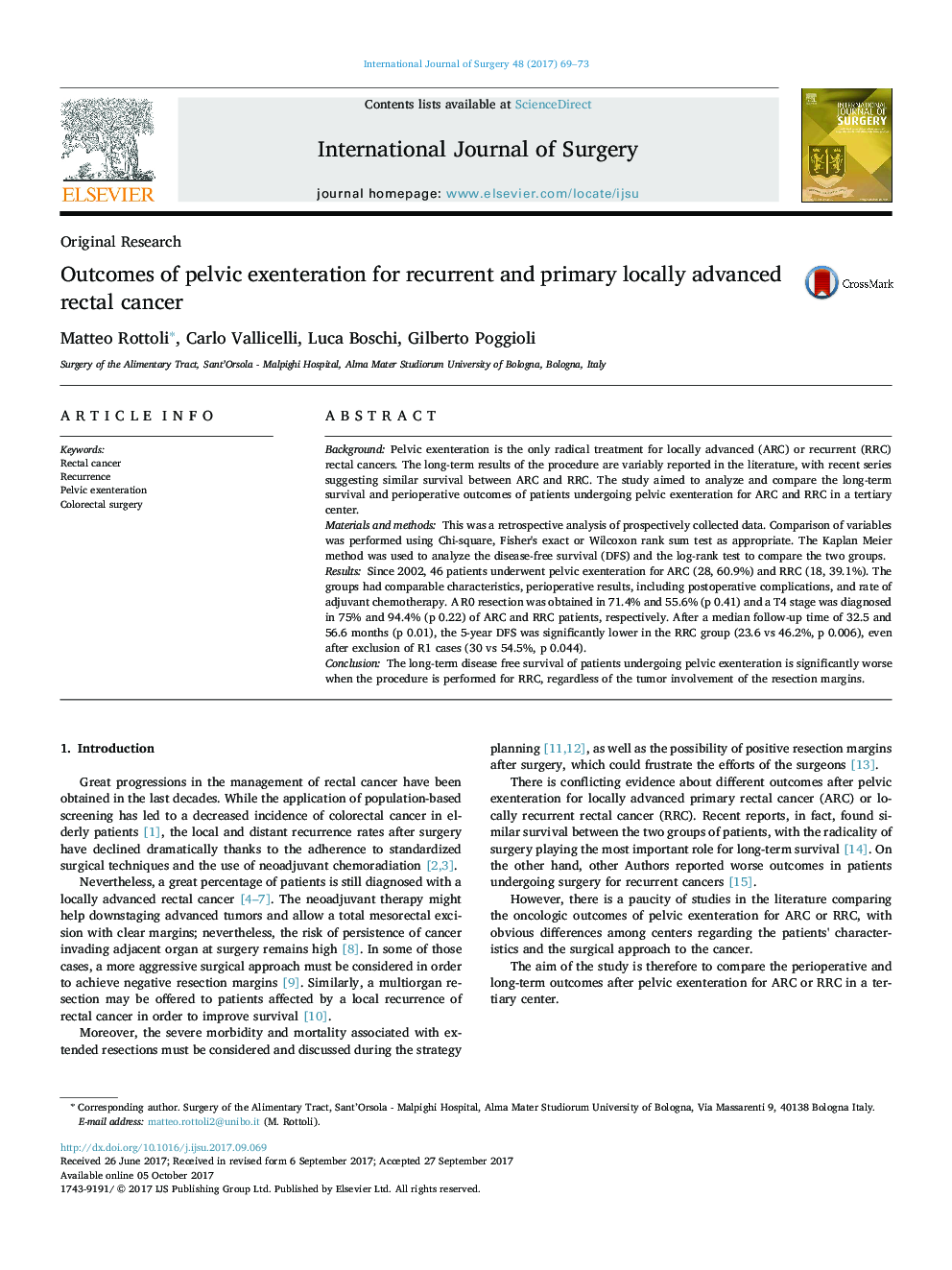| کد مقاله | کد نشریه | سال انتشار | مقاله انگلیسی | نسخه تمام متن |
|---|---|---|---|---|
| 5731833 | 1611929 | 2017 | 5 صفحه PDF | دانلود رایگان |
- Pelvic exenteration is the treatment of choice for locally advanced or recurrent rectal cancer.
- The radicality of surgery was highlighted as the most important predictive factor for outcomes.
- Outcomes of patients undergoing exenteration in a tertiary center were analyzed and compared.
- After exclusion of cases with positive resection margins, recurrent cancers had worse outcomes.
BackgroundPelvic exenteration is the only radical treatment for locally advanced (ARC) or recurrent (RRC) rectal cancers. The long-term results of the procedure are variably reported in the literature, with recent series suggesting similar survival between ARC and RRC. The study aimed to analyze and compare the long-term survival and perioperative outcomes of patients undergoing pelvic exenteration for ARC and RRC in a tertiary center.Materials and methodsThis was a retrospective analysis of prospectively collected data. Comparison of variables was performed using Chi-square, Fisher's exact or Wilcoxon rank sum test as appropriate. The Kaplan Meier method was used to analyze the disease-free survival (DFS) and the log-rank test to compare the two groups.ResultsSince 2002, 46 patients underwent pelvic exenteration for ARC (28, 60.9%) and RRC (18, 39.1%). The groups had comparable characteristics, perioperative results, including postoperative complications, and rate of adjuvant chemotherapy. A R0 resection was obtained in 71.4% and 55.6% (p 0.41) and a T4 stage was diagnosed in 75% and 94.4% (p 0.22) of ARC and RRC patients, respectively. After a median follow-up time of 32.5 and 56.6 months (p 0.01), the 5-year DFS was significantly lower in the RRC group (23.6 vs 46.2%, p 0.006), even after exclusion of R1 cases (30 vs 54.5%, p 0.044).ConclusionThe long-term disease free survival of patients undergoing pelvic exenteration is significantly worse when the procedure is performed for RRC, regardless of the tumor involvement of the resection margins.
Journal: International Journal of Surgery - Volume 48, December 2017, Pages 69-73
